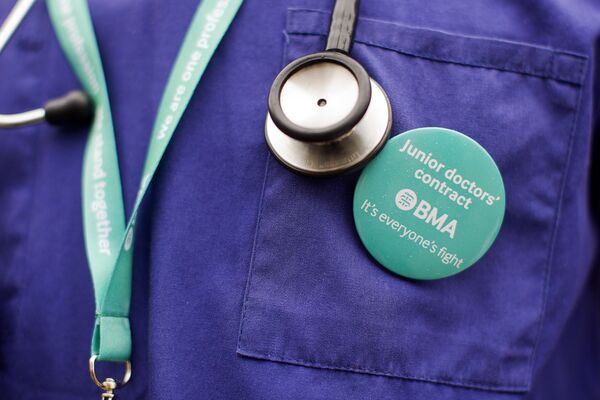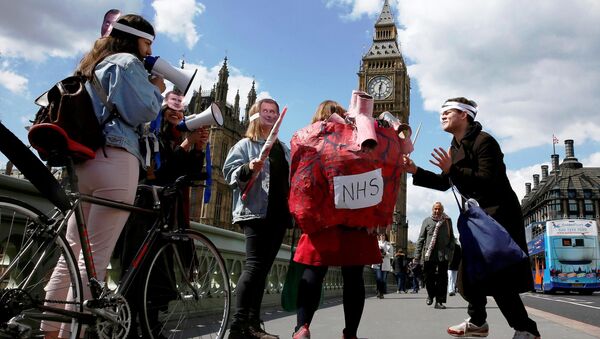This week, for the first time in the history of the UK’s National Health Service, thousands of junior doctors walked out of Accident and Emergency, intensive care and maternity units across England. This followed a breakdown in negotiations between the Government and the BMA (British Medical Association).

According to latest polling, an indefinite walk-out by junior doctors is opposed by 59 percent of Brits, with just 23 percent supporting such action. The BMA has not yet announced whether it will go ahead with further, indefinite strike action – a spokesperson told Sputnik earlier this week:
"We’ll have to assess the situation once these two days of action have finished, and see what options are open to us, and what action, if any, we want to take next. So at the moment there’s a question mark over that, but no decision has been made."
Junior doctor Prianka Padmanathan says public support for #JuniorDoctorsStrike here in Bristol has been "fantastic" pic.twitter.com/wSMzzGSsE1
— Claire Hayhurst (@clairehayhurst) April 26, 2016
Compared with industrial action in other sectors though, the UK public has been very supportive of junior doctors’ strikes, with four out of five YouGov polls showing support for current action. On top of that, polling suggests there is a growing tendency to blame the government for the breakdown in negotiations leading to this point.
Public increasingly blame government in junior doctors dispute – https://t.co/r1ibMeP7vn pic.twitter.com/EATUa5bjNS
— YouGov (@YouGov) April 27, 2016
The polls also show a shift in support for striking doctors since February, with more people now backing their opposition to the new contract — more people also appear to support continued strike action.
@heartsouthwest public support for #JuniorDoctorsStrike at Truro @doctor_oxford @WestBriton @CornishGuardian pic.twitter.com/0KWqMzVwYt
— Natasha Hougham (@natashahougham) April 6, 2016
Despite dire warnings by the Government that industrial action would place patients’ lives in danger, early reports have suggested that hospitals throughout England coped well during the initial strike, which the BMA insisted had been carefully planned in order to minimize disruption to patient care. The BMA told Sputnik that the current strikes were “short term disruption, to protect patient care in the longer term”.
Further industrial action is yet to be confirmed, but is likely, given that the government still shows no signs yet of backing down on its demands.


